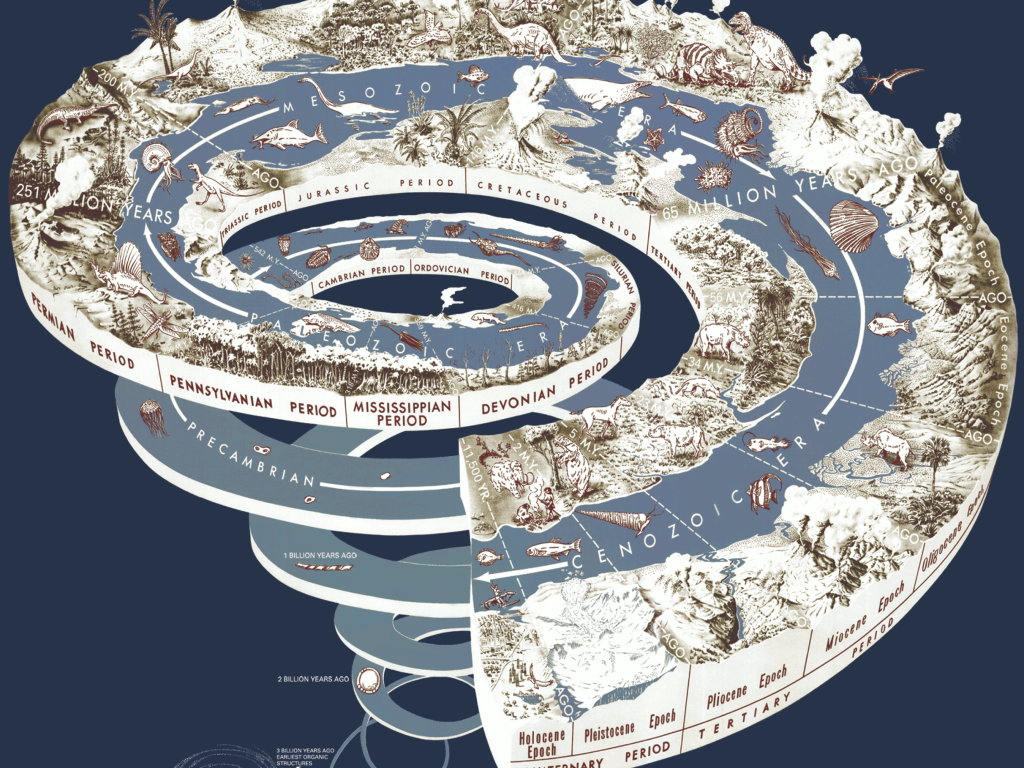Geo-philosophy and the anthropocene: Pushing social science forward

by Bradley Rink
ACDI Masters Course Convenor
Life in the anthropocene—the geological epoch proposed by chemist Paul Crutzen and biologist Eugene Stoermer (2000)—is characterised by human domination of the environment through increasing urbanisation, extraction of natural resources, burning biomass & fossil fuels and the synthetic fixation of nitrogen among others. The resulting impacts on human and animal species and their environments focuses attention on climate change as one of the most critical scientific questions of our generation. At the same time, their recognition of the anthropocene also requires us to consider moral and ethical questions, and to more clearly understand the ways in which humans and their environments interact. The anthropocene requires us to question the notion that humanity forms nature.
This new geological epoch is not just a wake-up call for physical scientists, however. Emerging from academic debates that arise in the anthropocene, the field of geo-philosophy enables new ways of understanding the messy entanglement of humanity and the environment—termed the ‘geo-social’. It is an approach situated at the intersection of society and space, territory that lies at the core of the discipline of geography from which I write.
Inspired by the work of Gilles Deleuze and Felix Guattari (1987), geo-philosophy considers the interconnectedness of humans, other animal species and their environments. It recognises the rhizomatic nature of our relationships, their uncertainty and their often unexpected consequences. Fresh ideas that arise out of geo-philosophy’s constituent literatures—including feminist, queer, and hybrid geographies—problematize human/environment interaction within the anthropocene by interrogating the assumptions of power, domination, and normative use of the environment by humans. Geo-philosophy sheds new light on our thinking about globalisation, decolonisation, and struggles for communities and individuals of all kinds to ‘belong’ in our complex and increasingly connected world. Geo-philosophy also exposes alternative readings of the relationship between humans and their environments so that boundaries between nature, culture, subject and object are blurred.
In this way the social sciences have critiqued the normative use of nature, the natural order of a globalised industrial system, and the resulting effects on both humans and the environment. Through the social sciences, the causes and effects of the anthropocene are resituated to illustrate the effects of climate change on geo-social issues of race, gender, and sexuality among others.
The emergent literature of geo-philosophy is but one example of how the social sciences are advancing knowledge of the anthropocene and our understanding of climate change. Within the context of debates on climate change and sustainable development, the emerging literature of geo-philosophy within the discipline of geography particularly enables new ways of interrogating the entanglement of humanity and the environment.
In combination with climatologists, economists, engineers, and lawyers—among others—the social sciences provide important interdisciplinary terrain for scientists of all kinds wishing to include a geo-social approach to the notion of the anthropocene. As such, the forcing of our climate has also pushed the social sciences to think about the complex ways that humans and their environments interact in our current situation and the uncertain future beyond.
Image: Diagram of geological time scale. Image in the public domain. Original source: http://pubs.usgs.gov/gip/2008/58/geotimespiral_text.pdf